
Famagusta: The Jewel of Cyprus' East Coast
Famagusta is an enchanting city on the east coast of Cyprus, known for its rich history and stunning architecture. Once a thriving medieval port, the city today is a unique blend of ancient ruins and modern life. As you wander through the streets of Famagusta, you'll find yourself stepping back in time, surrounded by fortified walls and ancient churches. The city is a testament to centuries of diverse cultural influences, reflected in its Gothic cathedrals and Ottoman mosques. One of the highlights of Famagusta is the ancient walled city, which offers a glimpse into the past with its well-preserved medieval structures. The Othello Castle, named after Shakespeare's tragic hero, is a must-visit for history enthusiasts. The castle provides panoramic views of the city and the Mediterranean Sea, making it a perfect spot for photography. Beyond its historical allure, Famagusta is also home to beautiful beaches with crystal-clear waters. The golden sands of Fig Tree Bay and the serene shores of Glapsides Beach are perfect for relaxation and water sports. The city's vibrant local markets, filled with fresh produce and traditional Cypriot goods, offer a taste of the local culture. Whether you're a history buff, a beach lover, or a foodie, Famagusta has something for everyone.
Local tips in Famagusta
- Visit the ancient walled city early in the morning to avoid the crowds and enjoy a peaceful exploration.
- Don't miss out on trying local Cypriot dishes like halloumi, souvlaki, and kleftiko at the local tavernas.
- Wear comfortable shoes as the cobblestone streets of the walled city can be uneven.
- Bring a hat and sunscreen, especially during the summer months, as the Cypriot sun can be intense.
- Check out the local markets for unique souvenirs and fresh local produce.
Famagusta: The Jewel of Cyprus' East Coast
Famagusta is an enchanting city on the east coast of Cyprus, known for its rich history and stunning architecture. Once a thriving medieval port, the city today is a unique blend of ancient ruins and modern life. As you wander through the streets of Famagusta, you'll find yourself stepping back in time, surrounded by fortified walls and ancient churches. The city is a testament to centuries of diverse cultural influences, reflected in its Gothic cathedrals and Ottoman mosques. One of the highlights of Famagusta is the ancient walled city, which offers a glimpse into the past with its well-preserved medieval structures. The Othello Castle, named after Shakespeare's tragic hero, is a must-visit for history enthusiasts. The castle provides panoramic views of the city and the Mediterranean Sea, making it a perfect spot for photography. Beyond its historical allure, Famagusta is also home to beautiful beaches with crystal-clear waters. The golden sands of Fig Tree Bay and the serene shores of Glapsides Beach are perfect for relaxation and water sports. The city's vibrant local markets, filled with fresh produce and traditional Cypriot goods, offer a taste of the local culture. Whether you're a history buff, a beach lover, or a foodie, Famagusta has something for everyone.
When is the best time to go to Famagusta?
Iconic landmarks you can’t miss
Othello Castle
Explore Othello Castle in Famagusta: a historic fortress with Venetian architecture and Shakespearean ties, offering panoramic views.
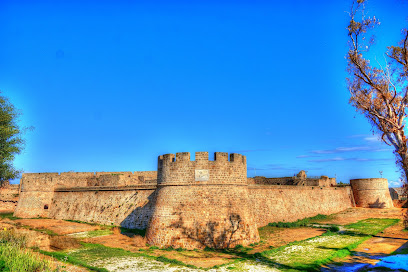
Lala Mustafa Pasha Mosque
Discover the rich history and stunning architecture of Lala Mustafa Pasha Mosque, a must-visit cultural landmark in Famagusta, Cyprus.
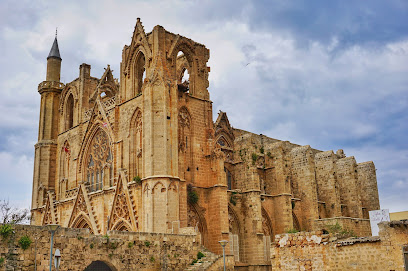
Namik Kemal Dungeon
Explore the historical depths of Namik Kemal Dungeon, a captivating landmark in Famagusta that tells tales of resilience and cultural heritage.
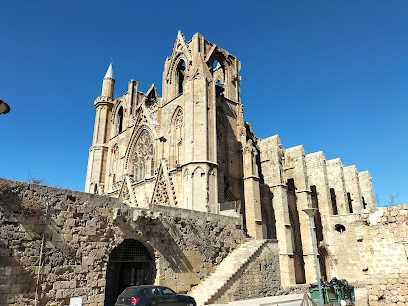
Famagusta Viewpoint
Witness the haunting beauty of Famagusta's ghost city from Deryneia's poignant viewpoint, reflecting Cyprus's divided history.
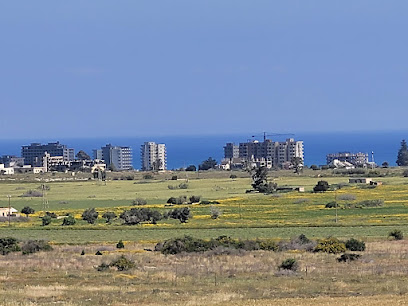
Canbulat Museum
Explore the Canbulat Museum in Famagusta to uncover the rich history and culture of the region through its captivating exhibits and artifacts.
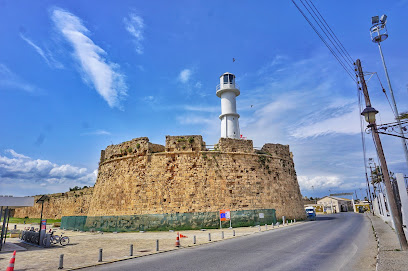
Famagusta Castle Arcade
Explore Famagusta Castle Arcade for a unique blend of shopping, dining, and cultural experiences in the heart of Cyprus.
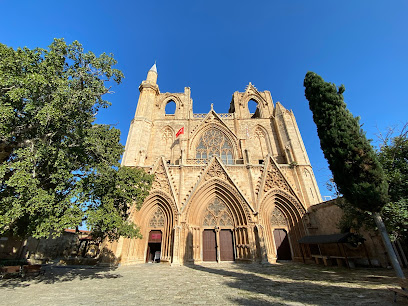
Venetian palace ruins
Discover the rich history and stunning architecture of the Venetian palace ruins in Famagusta, a captivating stop for history lovers and travelers alike.
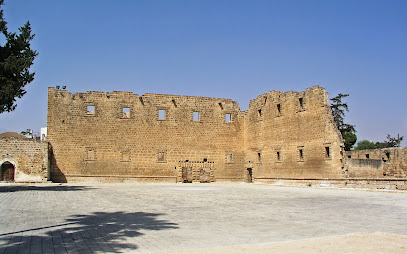
Othello Tower
Explore Othello Tower in Famagusta: a historic fortress with stunning views, rich architecture, and a Shakespearean connection. A must-see Cyprus landmark!
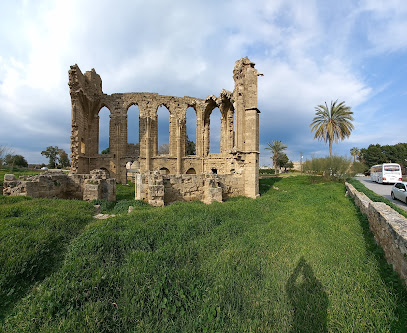
Martinengo Bastion
Discover the historical allure of Martinengo Bastion, a serene park in Famagusta, Cyprus, rich in heritage and natural beauty.
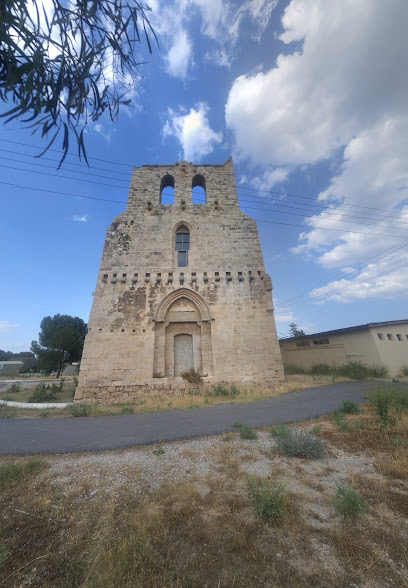
C Ü M B E Z A Ğ A C I 1 2 9 9
Explore the captivating history & beauty of C Ü M B E Z A Ğ A C I 1 2 9 9 in Famagusta, Cyprus, a must-visit landmark with rich cultural heritage.
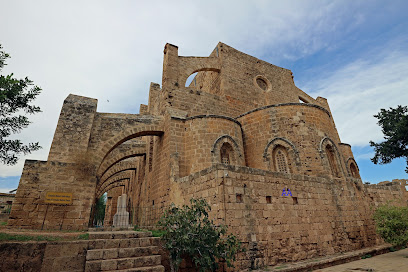
FAMAGUSTA WALLED CITY ASSOCIATION (MASDER)
Discover the rich history and vibrant culture of Famagusta at the Walled City Association, where heritage meets charming boutique shops.
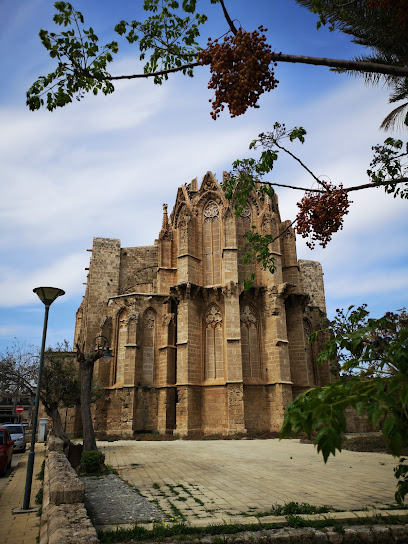
Ravelin Bastion
Discover the historical significance of Ravelin Bastion, a captivating site showcasing Cyprus's military architecture and stunning coastal views.
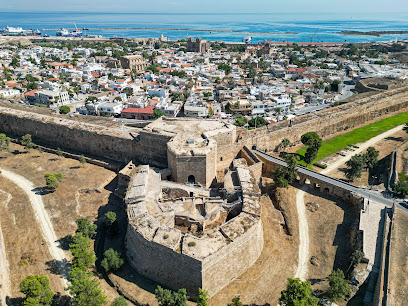
Palm Beach
Discover the enchanting Palm Beach, a historical landmark in Famagusta, where stunning views meet rich cultural heritage for an unforgettable experience.
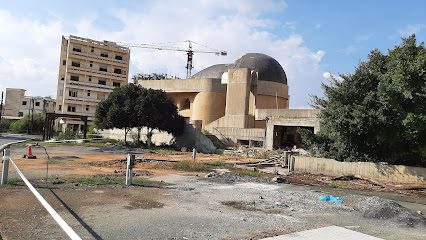
Famagusta, Suriçi
Discover Famagusta Suriçi: A captivating walled city where medieval history, diverse cultures, and stunning architecture create an unforgettable experience.
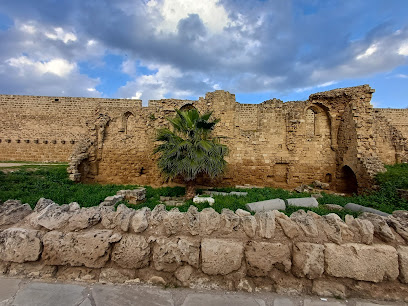
Ginkgo boom
Experience the Ginkgo Boom in Famagusta, a historical landmark that embodies the rich culture and heritage of Cyprus.
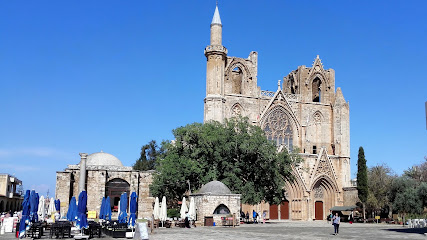
Unmissable attractions to see
Holy Church of Saint Lazarus
Discover the spiritual heart of Larnaca at the Holy Church of Saint Lazarus, a stunning Byzantine church built over the tomb of the revered saint, showcasing Cyprus's rich religious history.
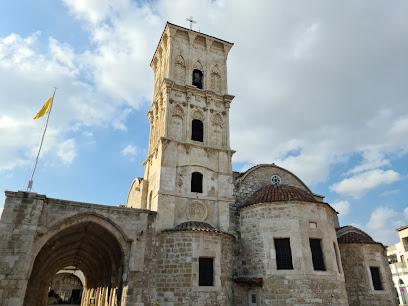
Ayia Napa Harbour
Experience the vibrant atmosphere, stunning sunsets, and rich culture at Ayia Napa Harbour, a top tourist destination in Cyprus.
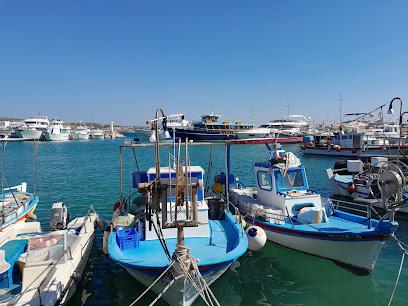
Cavo Greco National Park
Discover Cyprus's southeastern gem: Cavo Greco National Park, where dramatic cliffs meet crystal waters, offering hiking, sea caves, and breathtaking views for nature lovers and adventurers.
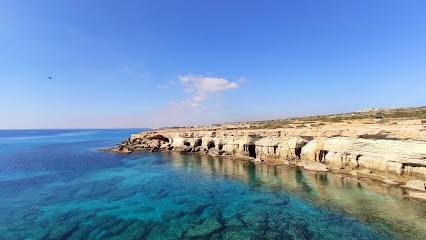
Sculpture Park
Discover a unique fusion of art and nature at Ayia Napa Sculpture Park, an open-air museum showcasing contemporary sculptures against the stunning backdrop of the Mediterranean coast.
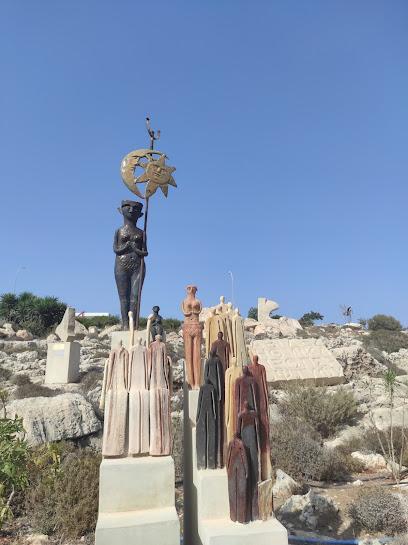
Nissi Beach
Experience the ultimate Mediterranean escape at Nissi Beach, Cyprus: pristine sands, turquoise waters, thrilling water sports, and vibrant nightlife await in this coastal paradise.
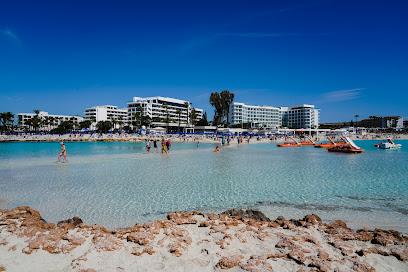
WaterWorld Themed Waterpark Ayia Napa
Experience the magic of ancient Greece at WaterWorld Ayia Napa, Europe's largest themed waterpark, offering thrilling rides, family fun, and an unforgettable aquatic adventure.
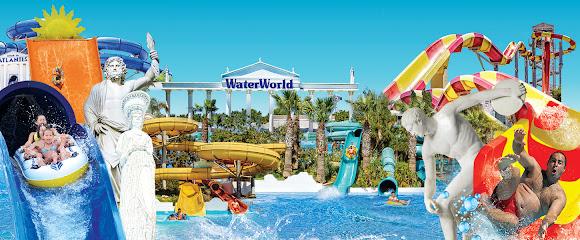
Cape Cavo Greco
Discover Cyprus's breathtaking coastal beauty at Cape Cavo Greco: Explore dramatic cliffs, hidden sea caves, and crystal-clear waters in this natural paradise, perfect for adventure and relaxation.
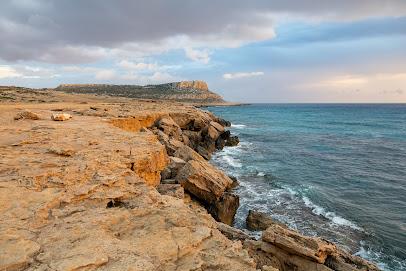
Finikoudes Beach
Experience the allure of Larnaca at Finikoudes Beach: golden sands, azure waters, and a vibrant promenade where relaxation, recreation, and culture converge.
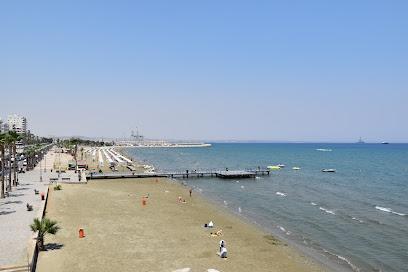
Sea Caves
Discover the breathtaking Ayia Napa Sea Caves: a natural wonder of sculpted cliffs, hidden tunnels, and crystal-clear waters, perfect for adventure and exploration in Cyprus.
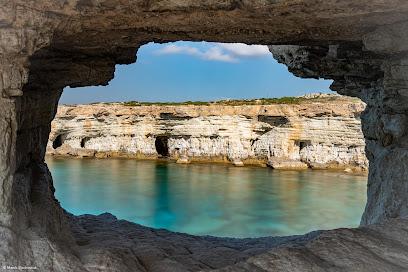
Larnaka Medieval Fort
Explore centuries of Cypriot history at the Larnaka Medieval Fort, from its medieval origins to its Ottoman and British transformations, offering panoramic coastal views and cultural insights.
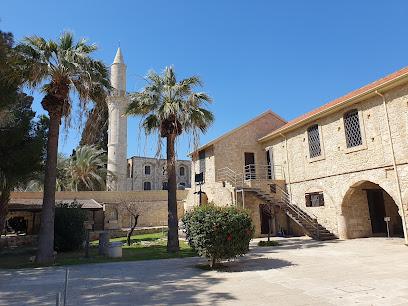
Ayia Napa Monument
Discover the heart of Ayia Napa at its iconic monument, a symbol of heritage and unity, offering a serene escape and a glimpse into the town's rich history.
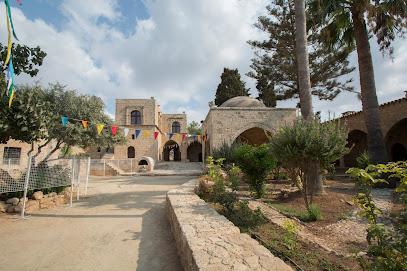
Bridge of Love
Discover the enchanting Bridge of Love in Ayia Napa, Cyprus: a natural wonder where romance meets breathtaking Mediterranean views, creating unforgettable moments for couples and adventurers alike.
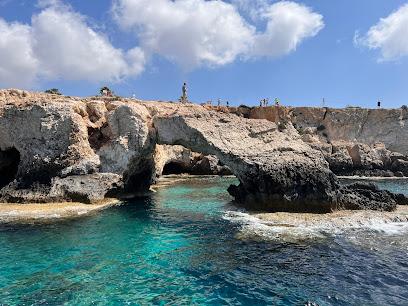
Konnos Beach
Discover Konnos Beach, Cyprus: A stunning coastal paradise with crystal-clear waters, golden sands, and breathtaking scenery nestled between Ayia Napa and Protaras.
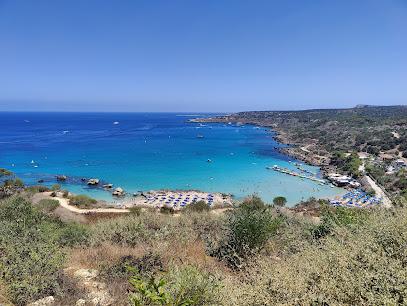
Magic Dancing Waters Live Show
Experience a symphony of water, light, and fire at the Magic Dancing Waters Live Show in Protaras, a mesmerizing spectacle for all ages that combines art, technology, and nature.
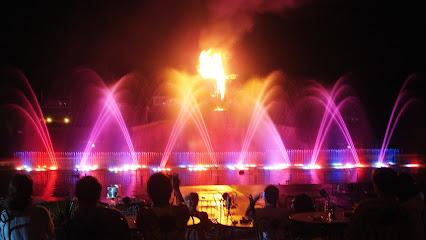
Mackenzie Beach
Experience the vibrant coastal charm of Mackenzie Beach in Larnaca, Cyprus: golden sands, clear waters, lively promenade, and unforgettable Mediterranean moments await.
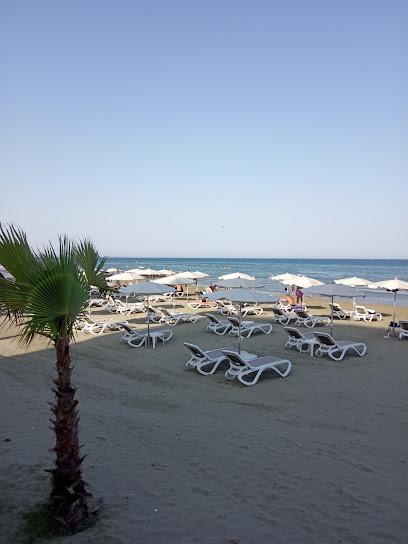
Essential places to dine
Eziç Famagusta
Discover authentic Turkish cuisine at Eziç Famagusta – where every dish tells a story of tradition and flavor.
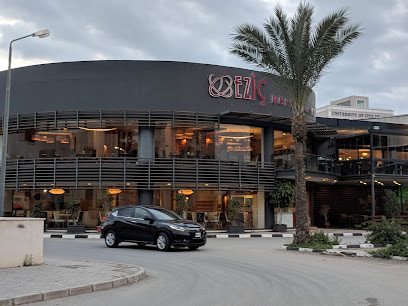
Aspava Restaurant & Bar
Experience authentic Turkish flavors at Aspava Restaurant & Bar in Famagusta - where every dish tells a story.
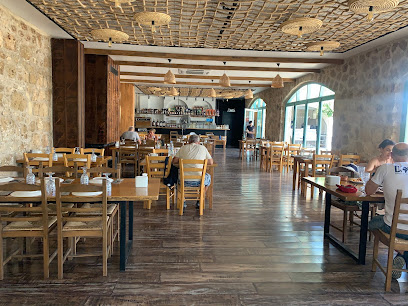
The Palm House
Discover culinary bliss at The Palm House in Famagusta - where delicious food meets stunning views in a tranquil setting.
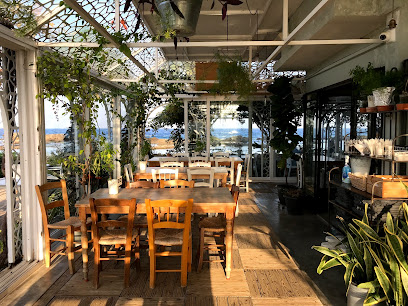
Zagato
Discover the flavors of Famagusta at Zagato – where local ingredients meet international cuisine in an unforgettable dining experience.
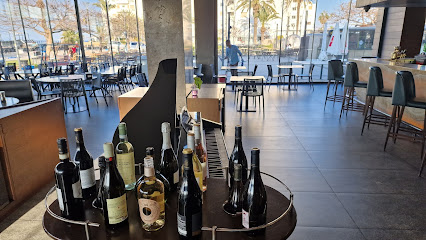
Beckett Restaurant
Discover the exquisite flavors of Cyprus at Beckett Restaurant in Famagusta, where local ingredients meet culinary creativity.
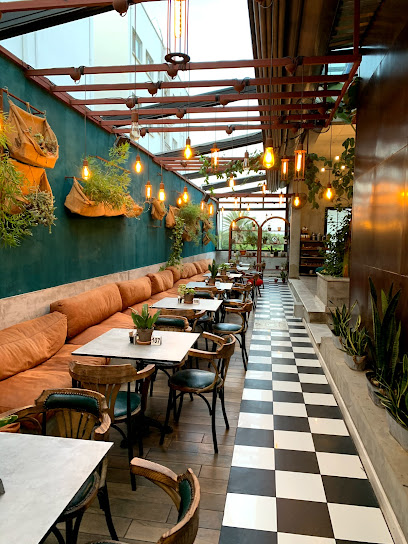
Niazi's Restaurants
Experience authentic Turkish cuisine at Niazi's Restaurants in Famagusta – where tradition meets flavor in every dish.
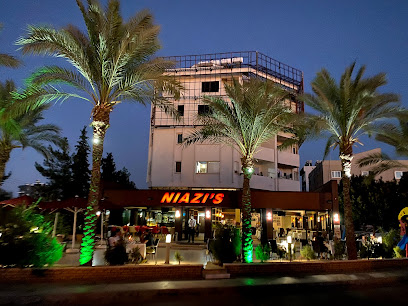
Dumlupınar Restaurant
Experience authentic Cypriot and Mediterranean cuisine at Dumlupınar Restaurant in Famagusta – a must-visit culinary destination for all food lovers.
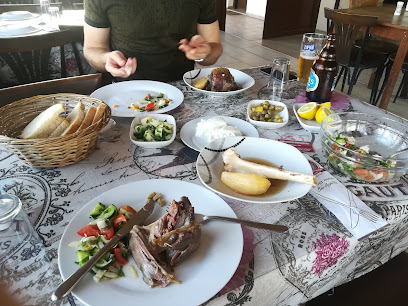
Devran Beach Restaurant
Experience authentic Turkish cuisine at Devran Beach Restaurant while enjoying breathtaking views of Palm Beach in Gazimağusa.
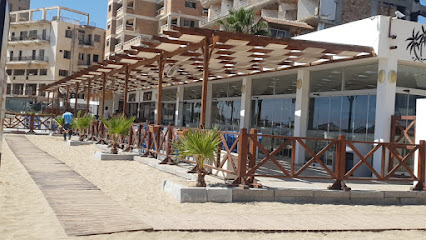
İncir Altı Meze Restaurant
Discover authentic Cypriot flavors at İncir Altı Meze Restaurant in Famagusta—an unforgettable dining experience awaits.
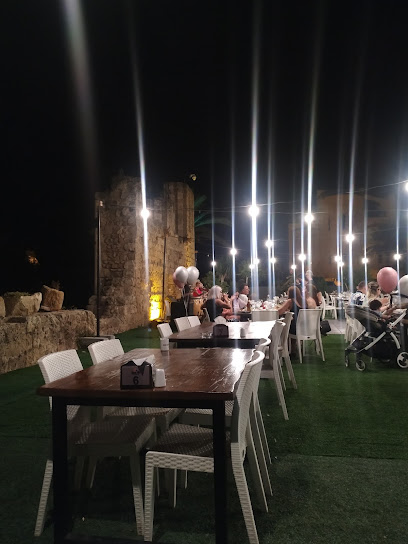
Shakespeare Food & Bar
Experience the vibrant flavors of Cyprus at Shakespeare Food & Bar – where every meal is a celebration.
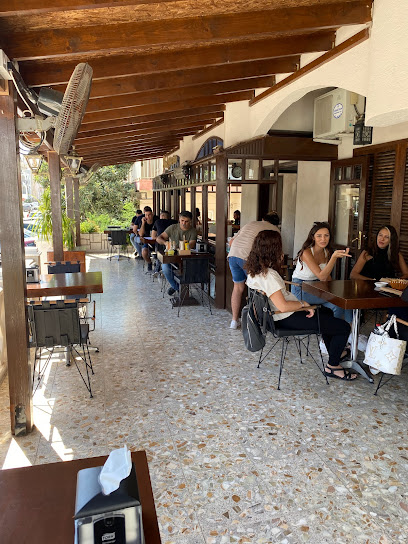
Castello Restaurant & Bar
Discover authentic Turkish flavors at Castello Restaurant & Bar in Famagusta – where culinary traditions meet modern dining experiences.
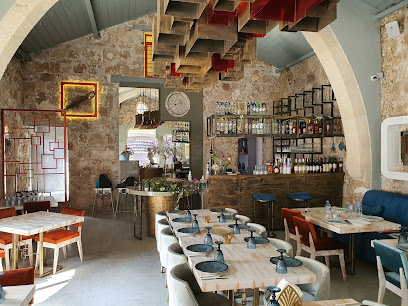
Cafe 5
Discover Café 5 in Famagusta - where cozy vibes meet exceptional coffee and delicious treats in Cyprus.
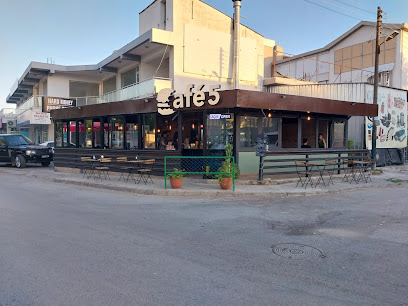
Mr Falafel
Experience authentic Middle Eastern cuisine at Mr. Falafel in Famagusta - where every bite tells a story.
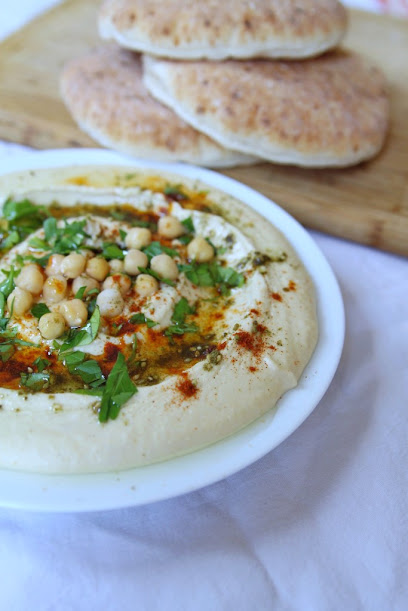
Historia Restaurant Cafe
Experience authentic Cypriot cuisine at Historia Restaurant Cafe in Famagusta - where every meal tells a story.
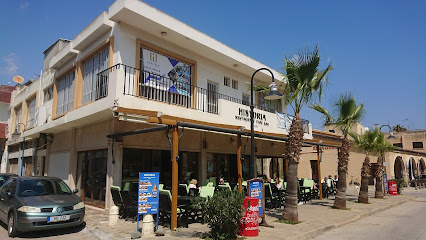
Sertbay Restoran
Experience the rich flavors of Turkey at Sertbay Restoran, where authentic cuisine meets warm hospitality in Famagusta.
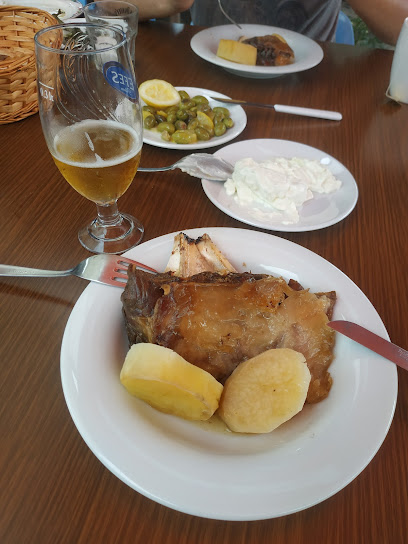
Markets, malls and hidden boutiques
City Mall
Discover the vibrant shopping experience at City Mall Famagusta, where fashion, dining, and entertainment converge for unforgettable moments.
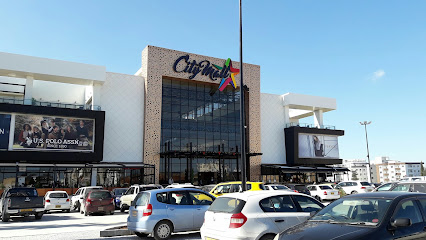
Önder shopping center
Discover Önder Shopping Center in Famagusta: A vibrant hub for shopping, dining, and entertainment in Cyprus.
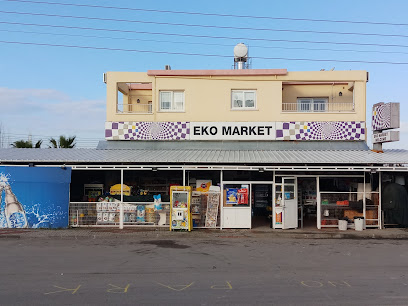
Famagusta Castle Arcade
Discover the unique shopping experience at Famagusta Castle Arcade, where modern retail meets the historical charm of Famagusta.
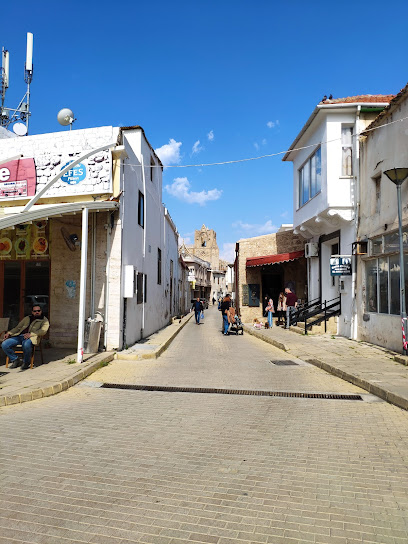
Metin Market
Experience the colorful Metin Market in Famagusta, a shopping haven blending local culture, unique shops, and delightful cuisine.
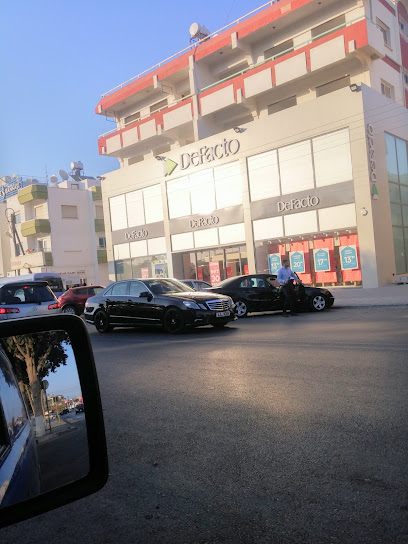
La'Poem
Discover contemporary fashion at La'Poem in Famagusta, where style meets comfort and local culture shines through unique designs.
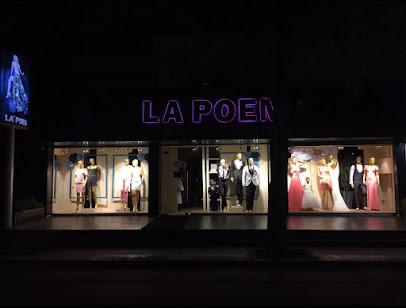
Famagusta Pawn Shop
Explore Famagusta Pawn Shop for unique used furniture and vintage treasures that capture the essence of local culture and history.
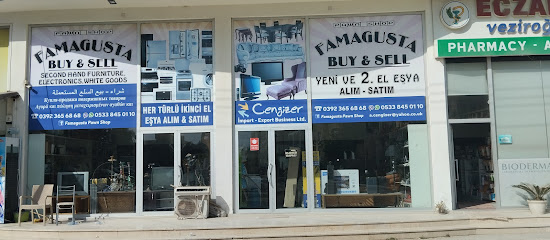
Bigboss Baskı & Bushmaster
Discover fashionable treasures at Bigboss Baskı & Bushmaster in Famagusta, where unique styles meet vibrant culture.
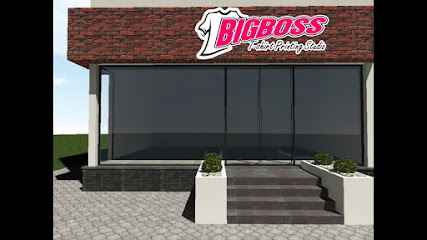
FANCY CARNİVAL
Discover FANCY CARNİVAL, your ultimate destination for vibrant party supplies and festive decorations in Gazimağusa, Cyprus.
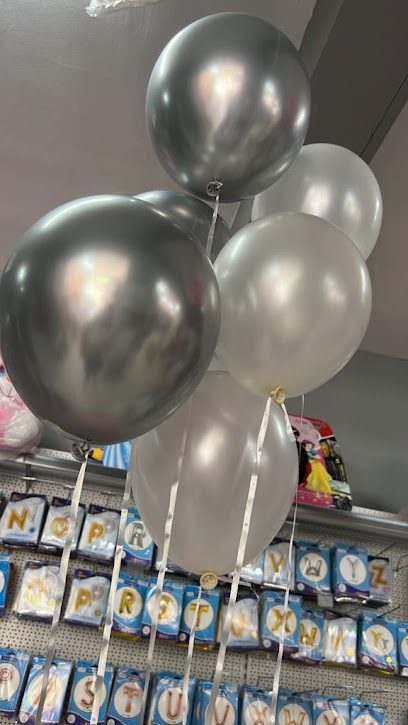
Old City Mağusa
Explore Old City Mağusa: A premier watch and sunglasses store in Famagusta, combining quality products with a rich cultural experience.

Legomania
Explore a colorful world of LEGO at Legomania in Famagusta, where creativity comes to life through endless building adventures.
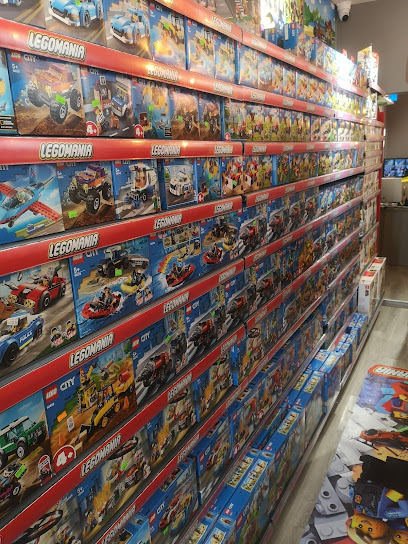
Oops Kıbrıs - Macro AVM
Explore Oops Kıbrıs at Macro AVM for unique gifts that embody the spirit of Cyprus and create lasting memories.

Men & Men
Explore the unique fashion offerings at Men & Men, a charming clothing store in Famagusta's vibrant Suriçi district, blending local culture with contemporary styles.

Serena AVM
Explore Serena AVM, Famagusta's premier clothing store, where fashion meets local culture in a stylish shopping experience.
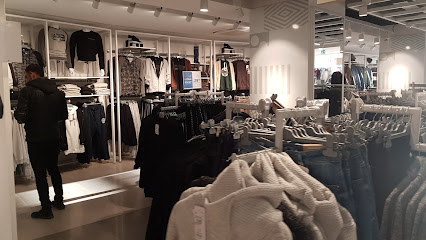
AYZE ET ve TAVUK Market
Explore AYZE ET ve TAVUK Market in Famagusta for a unique shopping experience filled with local flavors and culinary treasures.
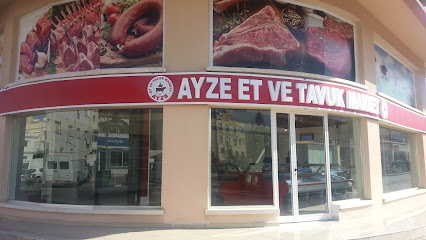
Altınbaş
Explore the exquisite jewelry collection at Altınbaş, where elegance meets craftsmanship in Famagusta's vibrant shopping scene.
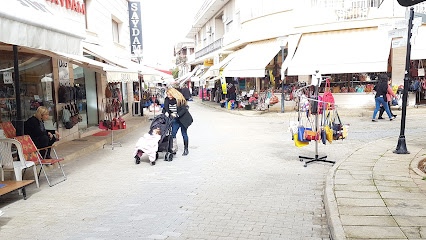
Essential bars & hidden hideouts
The Shamrock
Discover The Shamrock in Gazimağusa, where vibrant nightlife meets a cozy hookah lounge, perfect for unwinding after a day of exploration.
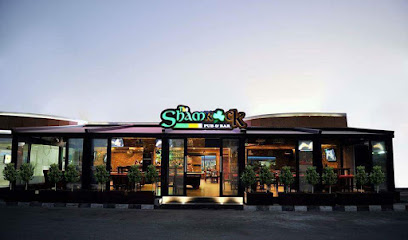
De Molay Bar
Experience the vibrant nightlife of Famagusta at De Molay Bar, where delicious drinks and a lively atmosphere await you!
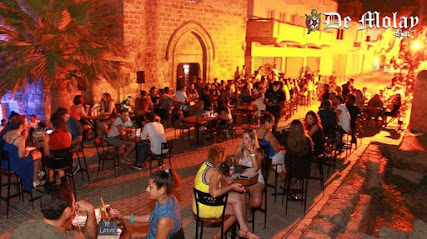
Shakespeare Food & Bar
Discover the vibrant atmosphere and exquisite flavors at Shakespeare Food & Bar in Famagusta, where every bite tells a story.
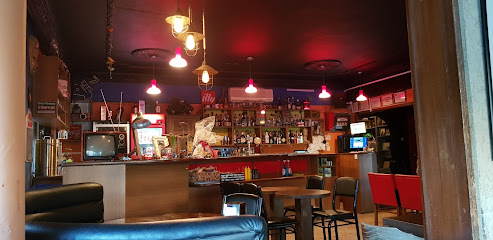
Monks Inn
Discover the vibrant nightlife at Monks Inn, Famagusta's premier bar for cocktails and good company in a lively atmosphere.
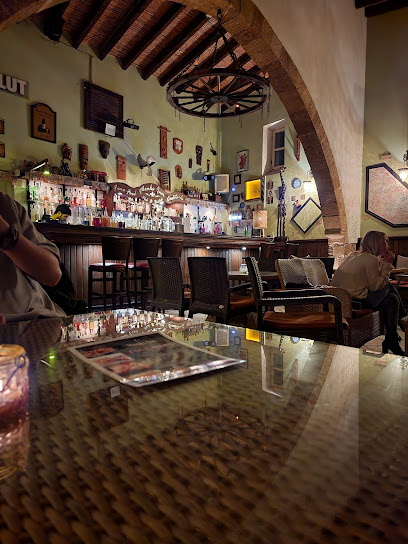
BARCODE
Discover the lively BARCODE in Famagusta, a must-visit bar perfect for enjoying drinks and vibrant nightlife in Cyprus.
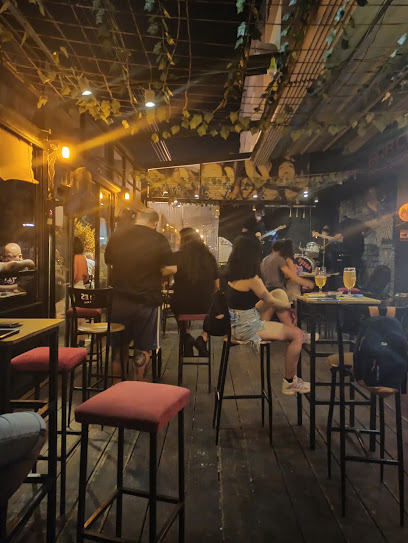
Q Bar Mağusa
Experience the vibrant nightlife of Famagusta at Q Bar Mağusa, where great drinks and a lively atmosphere await you.
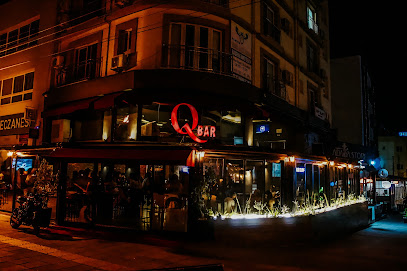
Lastapas Cafe & Bar
Discover the vibrant atmosphere of Lastapas Cafe & Bar in Famagusta, Cyprus, where delightful drinks and lively nights await every visitor.
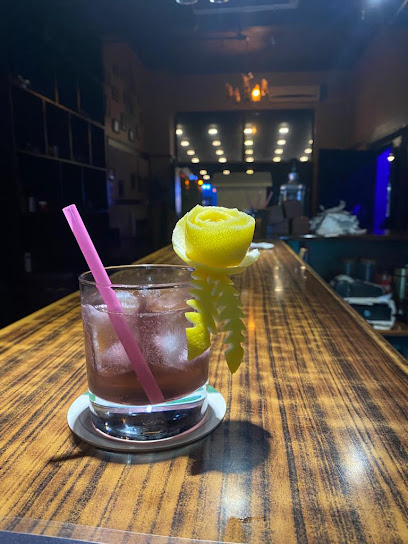
EnBarr
Discover Famagusta's vibrant nightlife at EnBarr, a trendy bar offering an array of cocktails and a lively atmosphere for unforgettable evenings.
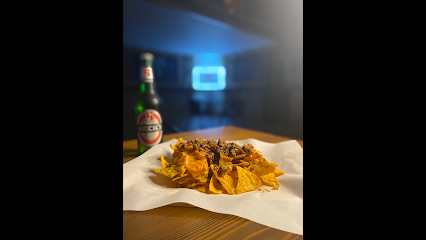
Cafe & Bar
Discover a vibrant cafe and bar in Famagusta, where delightful drinks and a cozy atmosphere create unforgettable memories.

42 Cafe & Bar
Experience the vibrant atmosphere and delicious drinks at 42 Cafe & Bar in Famagusta, a must-visit destination for tourists.
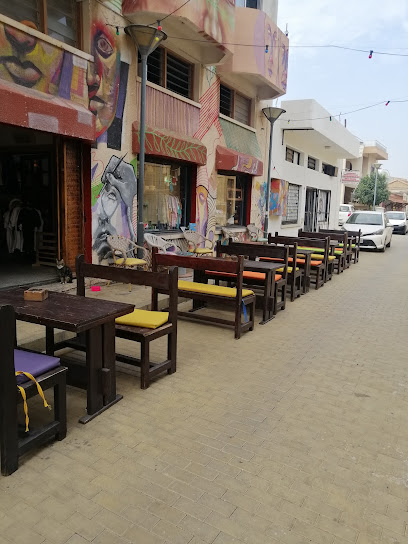
HAMAM INN
Discover Hamam Inn, where exquisite cocktails meet a serene lounge atmosphere in the heart of Gazimağusa, Cyprus.
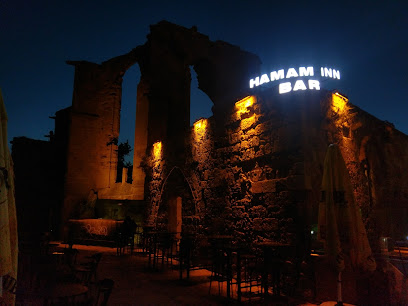
Legendary Sports Bar
Experience the thrill of live sports in a vibrant atmosphere at the Legendary Sports Bar, an essential stop for visitors in Famagusta.
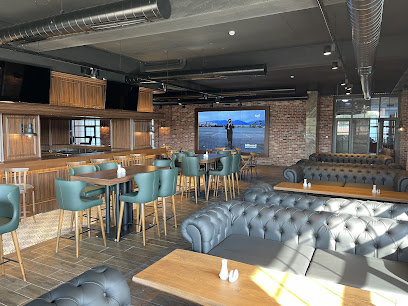
Brooklyn Pub
Immerse yourself in the lively nightlife of Gazimağusa at Brooklyn Pub, where vibrant drinks and a welcoming atmosphere await.
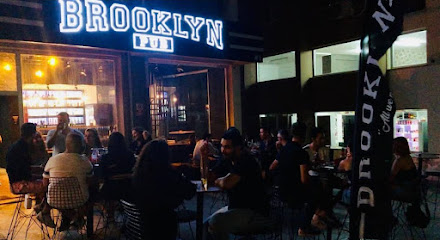
Retro
Discover Retro Pub in Gazimağusa: a unique blend of nostalgia, vibrant music, and a welcoming atmosphere, perfect for a night out.
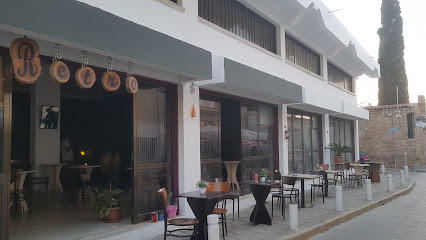
Local Phrases
-
- HelloΓεια σας
[Ya sas] - GoodbyeΑντίο
[Adio] - YesΝαι
[Nai] - NoΌχι
[Ohi] - Please/You're welcomeΠαρακαλώ
[Parakalo] - Thank youΕυχαριστώ
[Efharisto] - Excuse me/SorryΣυγνώμη
[Signomi] - How are you?Πώς είσαι;
[Pos ise;] - Fine. And you?Καλά. Εσύ;
[Kala. Esi;] - Do you speak English?Μιλάς Αγγλικά;
[Milas Agglika;] - I don't understandΔεν καταλαβαίνω
[Den katalaveno]
- HelloΓεια σας
-
- I'd like to see the menu, pleaseΘα ήθελα να δω το μενού, παρακαλώ
[Tha ithela na do to menu, parakalo] - I don't eat meatΔεν τρώω κρέας
[Den troo kreas] - Cheers!ΥΓΕΙΑ!
[Yia] - I would like to pay, pleaseΘα ήθελα να πληρώσω, παρακαλώ
[Tha ithela na plirosou, parakalo]
- I'd like to see the menu, pleaseΘα ήθελα να δω το μενού, παρακαλώ
-
- Help!Βοήθεια!
[Voithia!] - Go away!Φύγε!
[Fiye!] - Call the Police!Καλέστε την Αστυνομία!
[Kaleste tin Astinomia!] - Call a doctor!Καλέστε ένα γιατρό!
[Kaleste ena giatro!] - I'm lostΈχω χαθεί
[Eho hathi] - I'm illΕίμαι άρρωστος
[Ime arrostos]
- Help!Βοήθεια!
-
- I'd like to buy...Θα ήθελα να αγοράσω...
[Tha ithela na agorasoo...] - I'm just lookingΑπλά κοιτάω
[Apla kitao] - How much is it?Πόσο κοστίζει;
[Poso kostizi;] - That's too expensiveΑυτό είναι πολύ ακριβό
[Afto ine poli akribo] - Can you lower the price?Μπορείτε να μειώσετε την τιμή;
[Boreite na meiosete tin timi;]
- I'd like to buy...Θα ήθελα να αγοράσω...
-
- What time is it?Τι ώρα είναι;
[Ti ora ine;] - It's one o'clockΕίναι μία ώρα
[Ine mia ora] - Half past (10)Μισή (10)
[Misi (10)] - MorningΠρωί
[Proi] - AfternoonΑπόγευμα
[Apoyevma] - EveningΒράδυ
[Vradi] - YesterdayΧθες
[Hthes] - TodayΣήμερα
[Simera] - TomorrowΑύριο
[Aurio] - 1Ένα
[Ena] - 2Δύο
[Dyo] - 3Τρία
[Tria] - 4Τέσσερα
[Tessera] - 5Πέντε
[Pente] - 6Έξι
[Exi] - 7Επτά
[Epta] - 8Οκτώ
[Okto] - 9Εννιά
[Ennia] - 10Δέκα
[Deka]
- What time is it?Τι ώρα είναι;
-
- Where's a/the...?Πού είναι ένας/η...
[Pou ine enas/i...] - What's the address?Ποια είναι η διεύθυνση;
[Pia ine i diefthinsi;] - Can you show me (on the map)?Μπορείτε να μου δείξετε (στο χάρτη);
[Boreite na mou dixete (sto charti);] - When's the next (bus)?Πότε είναι το επόμενο (λεωφορείο);
[Pote ine to epomeno (leoforeio);] - A ticket (to ....)Ένα εισιτήριο (προς ....)
[Ena isitirio (pros ....)]
- Where's a/the...?Πού είναι ένας/η...
History of Famagusta
-
Famagusta, known as Gazimağusa in Turkish, was founded around 300 BC. Originally a small fishing village, it gained prominence due to its strategic location and natural harbor, which made it an important trading post in the Eastern Mediterranean.
-
During the Byzantine period, Famagusta was fortified and developed into a bustling port city. The city became a key defensive location against Arab raids and was home to several churches and public buildings that showcased Byzantine architectural styles.
-
Famagusta reached its height of prosperity under the Lusignan rule from 1192 to 1489. During this time, the city became one of the richest in the Eastern Mediterranean, with a flourishing economy based on trade and commerce. Gothic architecture flourished, with landmarks such as St. Nicholas Cathedral, which later became the Lala Mustafa Pasha Mosque.
-
In 1373, the Genoese captured Famagusta, leading to a period of decline. The city was later taken over by the Venetians in 1489, who restored some of its former glory. They enhanced its fortifications, including the construction of the famous city walls and the Othello Castle, named after the Shakespearean play believed to be inspired by the city.
-
Famagusta fell to the Ottoman Empire in 1571 after a protracted siege. The Ottomans converted many of the city's churches into mosques and introduced new architectural elements. The city remained under Ottoman control until the British took over Cyprus in 1878.
-
Under British rule, Famagusta saw significant modernization and infrastructure development. The British established administrative buildings, schools, and improved the port facilities, which contributed to the city's economic revival.
-
One of the most notable areas in Famagusta is Varosha, which was a thriving tourist destination before the Turkish invasion of Cyprus in 1974. The district was abandoned during the conflict and has since remained a ghost town, fenced off and under Turkish military control.
-
Famagusta is rich in cultural heritage, with a blend of Greek, Turkish, and Venetian influences. The city is known for its historical monuments, including ancient ruins, medieval churches, and Ottoman mosques, which reflect its diverse past and multicultural legacy.
-
Today, Famagusta is part of the Turkish Republic of Northern Cyprus, recognized only by Turkey. The city continues to attract visitors with its historical sites, beautiful beaches, and vibrant local culture, despite the ongoing political tensions in the region.
Famagusta Essentials
-
Famagusta is located on the eastern coast of Cyprus. The nearest international airport is Larnaca International Airport, approximately 50 kilometers away. From Larnaca, you can take a taxi or rent a car to reach Famagusta. There are also bus services that operate between Larnaca and Famagusta, offering a more economical option. The journey typically takes around 1 hour by road.
-
Famagusta has a variety of transportation options. Taxis are readily available and can be hailed on the street or booked in advance. Buses operate within the city and to nearby towns, providing an affordable way to travel. For more flexibility, consider renting a car. Bicycles and scooters are also popular for short distances and can be rented from local shops. Walking is a great way to explore the historic center and its attractions.
-
The official currency in Cyprus is the Euro (EUR). Credit and debit cards are widely accepted in hotels, restaurants, and shops. However, it is advisable to carry some cash, especially for smaller establishments, markets, and rural areas. ATMs are plentiful in Famagusta, and currency exchange services are available at banks and exchange bureaus.
-
Famagusta is generally a safe destination for tourists. However, it is wise to take standard precautions. Avoid walking alone at night in unfamiliar areas and keep an eye on your belongings in crowded places. Be cautious in the Varosha district, which remains a restricted and partially abandoned area. Petty crimes like pickpocketing can occur, so stay vigilant.
-
In case of emergency, dial 112 for immediate assistance. There are local police stations and medical facilities available in Famagusta. Ensure you have travel insurance that covers medical emergencies. Pharmacies are available for minor health issues and over-the-counter medications. Familiarize yourself with the location of the nearest hospital or clinic.
-
Fashion: Do dress modestly, especially when visiting religious sites. Avoid wearing revealing clothing. Religion: Do respect local customs and traditions. Always cover your head when entering churches or mosques. Public Transport: Do be respectful and give up your seat to elderly passengers. Don't eat or drink on public transport. Greetings: Do greet people with a handshake or a friendly nod. Using 'Kalimera' (Good morning) and 'Kalispera' (Good evening) is appreciated. Eating & Drinking: Do try local delicacies like 'meze' and accept food offerings graciously. Don't refuse hospitality, as it is considered impolite.
-
To experience Famagusta like a local, visit the local markets where you can buy fresh produce and traditional Cypriot goods. Engage with locals, as they are often friendly and willing to share stories about the city's history and culture. Don't miss exploring the ancient ruins and the walled city. Enjoy a meal at a traditional taverna and try local dishes such as 'halloumi' cheese and 'souvlaki'. For a unique experience, visit the beach at sunrise or sunset for breathtaking views.
Trending Landmark in Famagusta
-
Othello Castle
-
Lala Mustafa Pasha Mosque
-
Namik Kemal Dungeon
-
Famagusta Viewpoint
-
Canbulat Museum
-
Famagusta Castle Arcade
-
Venetian palace ruins
-
Othello Tower
-
Martinengo Bastion
-
C Ü M B E Z A Ğ A C I 1 2 9 9
-
FAMAGUSTA WALLED CITY ASSOCIATION (MASDER)
-
Ravelin Bastion
-
Palm Beach
-
Famagusta, Suriçi
-
Ginkgo boom
Nearby Cities to Famagusta
-
Things To Do in Ayia Napa
-
Things To Do in Protaras
-
Things To Do in Larnaca
-
Things To Do in Nicosia
-
Things To Do in Kyrenia
-
Things To Do in Limassol
-
Things To Do in Troodos
-
Things To Do in Pissouri
-
Things To Do in Polis Chrysochous
-
Things To Do in Paphos
-
Things To Do in Kato Paphos
-
Things To Do in Batroun
-
Things To Do in Byblos
-
Things To Do in Beirut
-
Things To Do in Jounieh











